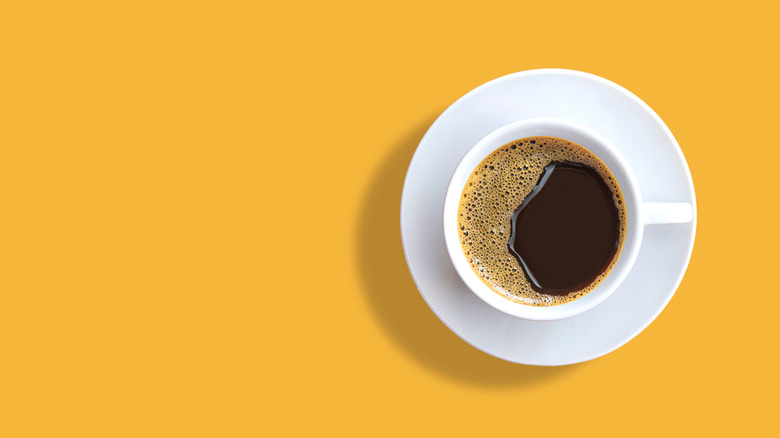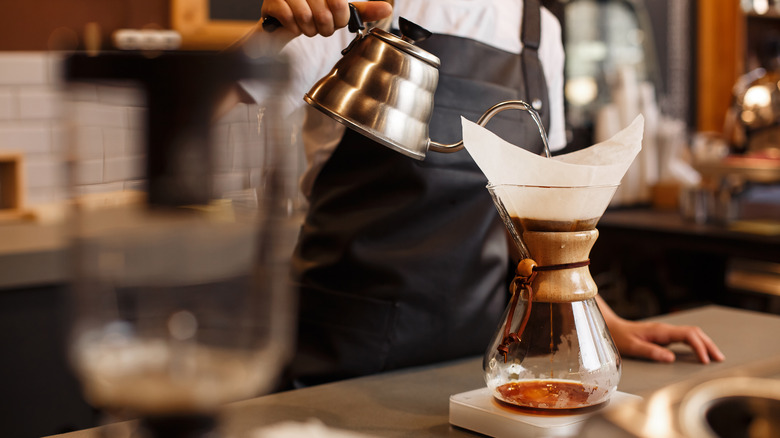The Surprising Reason Your Coffee Is Bitter
If you're not amongst the coffee-obsessed, you might still be wondering why your brew tastes seriously bitter at home. Even those who have caved and now have top-notch whole coffee beans to brew with a full home setup — maybe something that includes a great grinder, pour-over or drip apparatus, and a nice kettle — might not understand what's going wrong. How did their hard work, good equipment, and attention to detail still result in a bitter brew?
The truth of the matter is that it all comes down to timing and temperature. When brewing coffee at home, know first of all that hotter water does not equate to a better cup of joe. In fact, it's one of the primary reasons coffee can taste bitter, according to the Atlas Coffee Club. When water boils, it does so at a temperature of about 212 degrees Fahrenheit. That's at least six degrees too hot for making coffee, per La Colombe.
So, you've potentially been going a bit too far when it comes to prepping hot water for coffee. How can you address the issue once and for all?
This is how you can fix the problem
While you can always invest in a nice, accurate kettle that allows you to heat water to a very precise temperature, there is a much simpler solution. To prevent your coffee from becoming bitter, simply let the water sit after it boils. Even as short of a time as 30 seconds can work, tempering that temperature before you pour the water over the coffee grounds (via La Colombe). That's not quite all, however. Even if you allow your hot water the time it needs to cool down to make great coffee, you should still consider the timing of the pour, too.
If you heat water to just the right temperature, coffee that is allowed to brew or steep for too long results in bitter flavors, says the Atlas Coffee Club. So, keep an eye on your set-up don't allow the coffee grounds to soak up the hot water for an overly long period of time. If this happens, the bitter compounds in the coffee grounds are what you'll taste in the cup.

